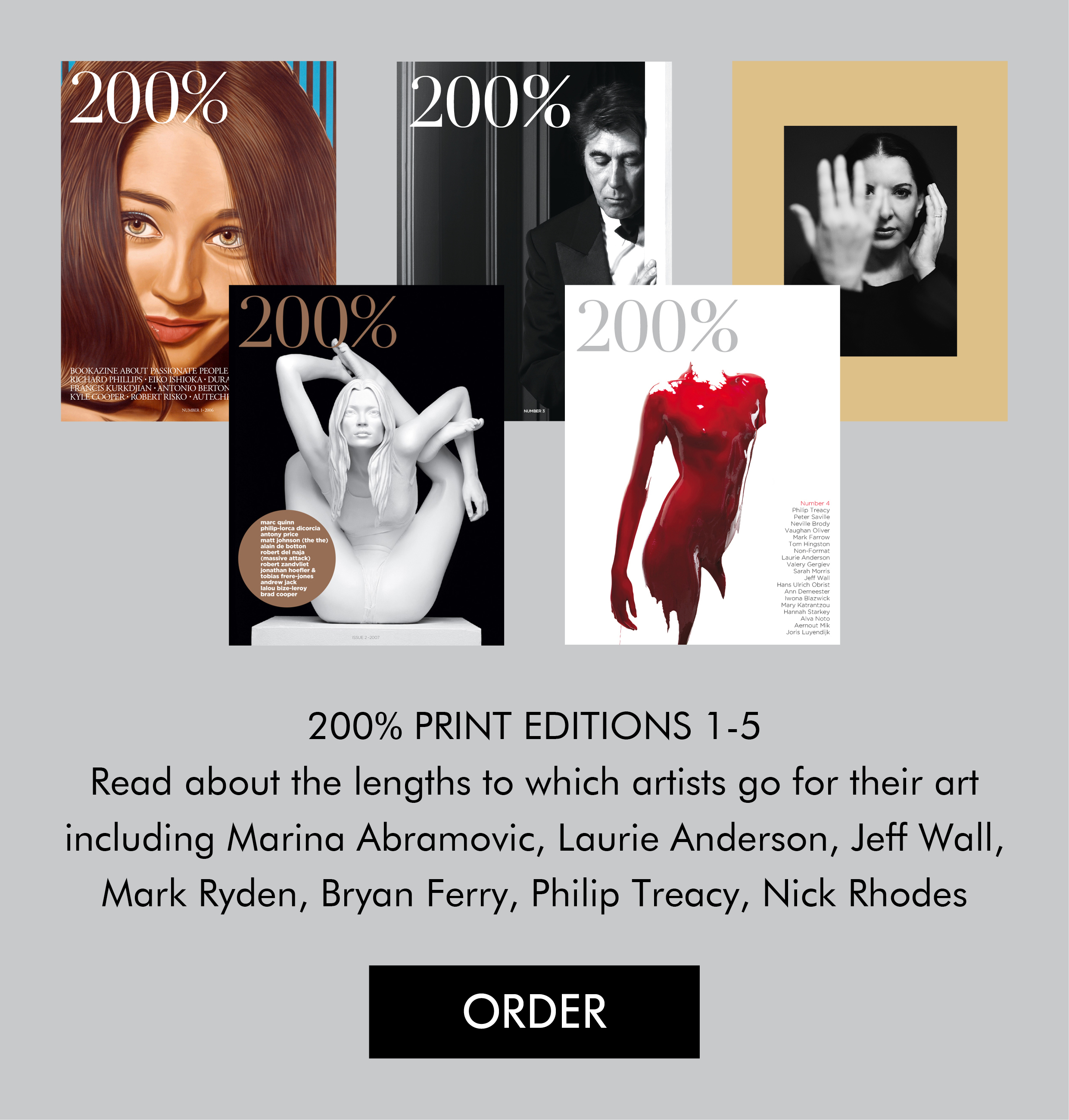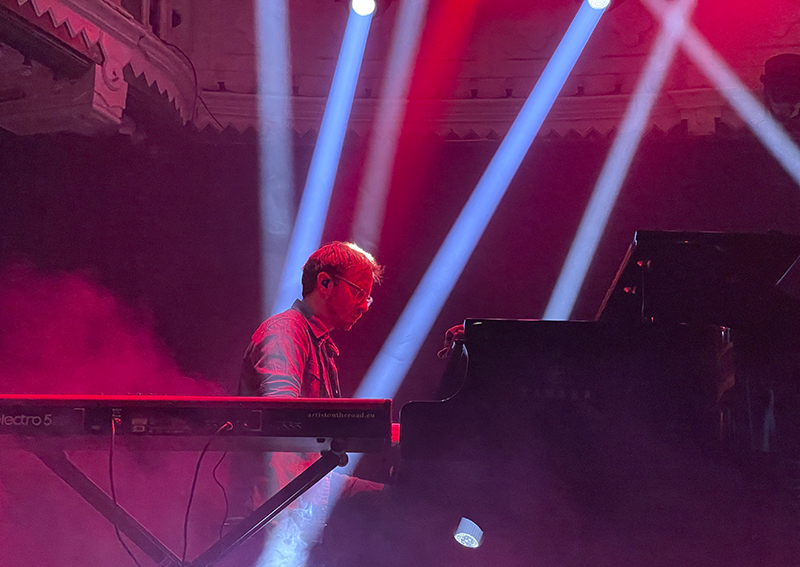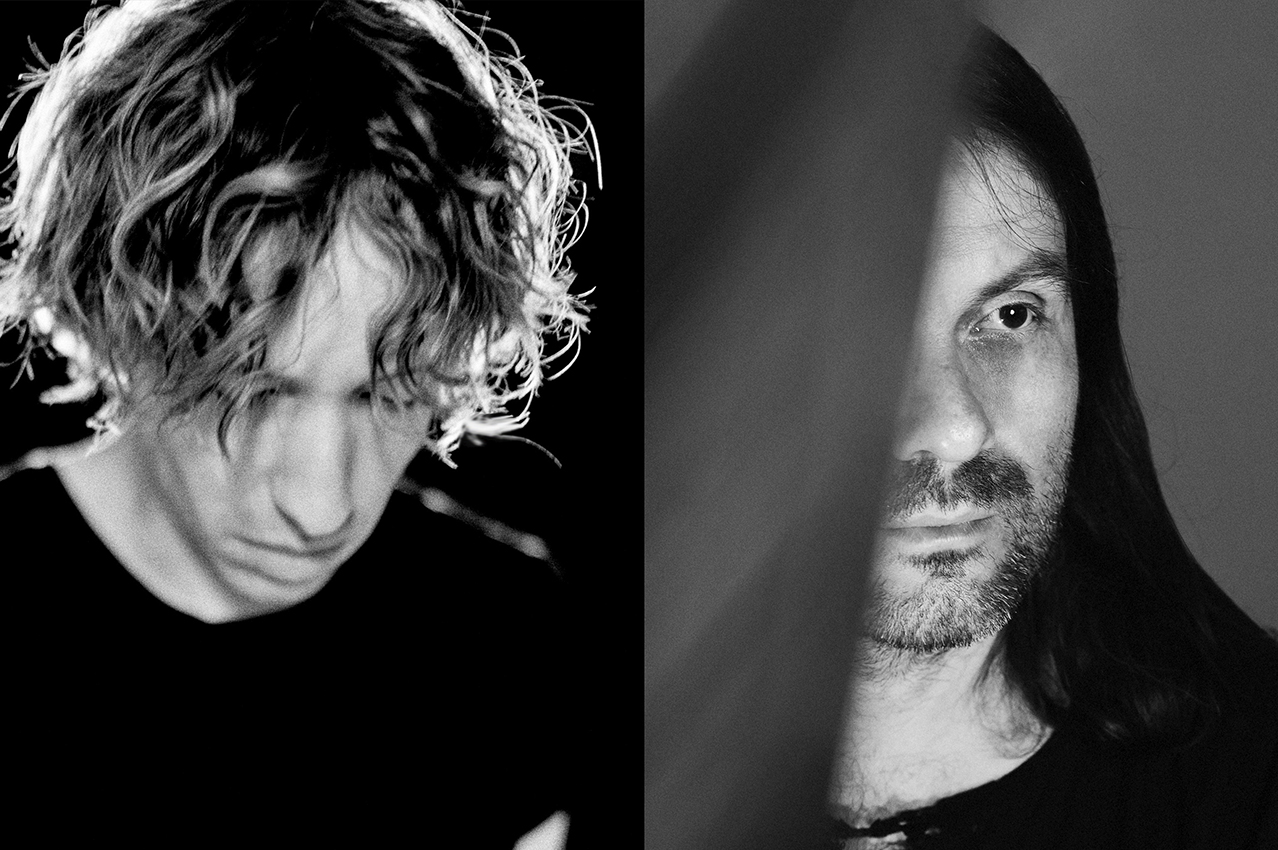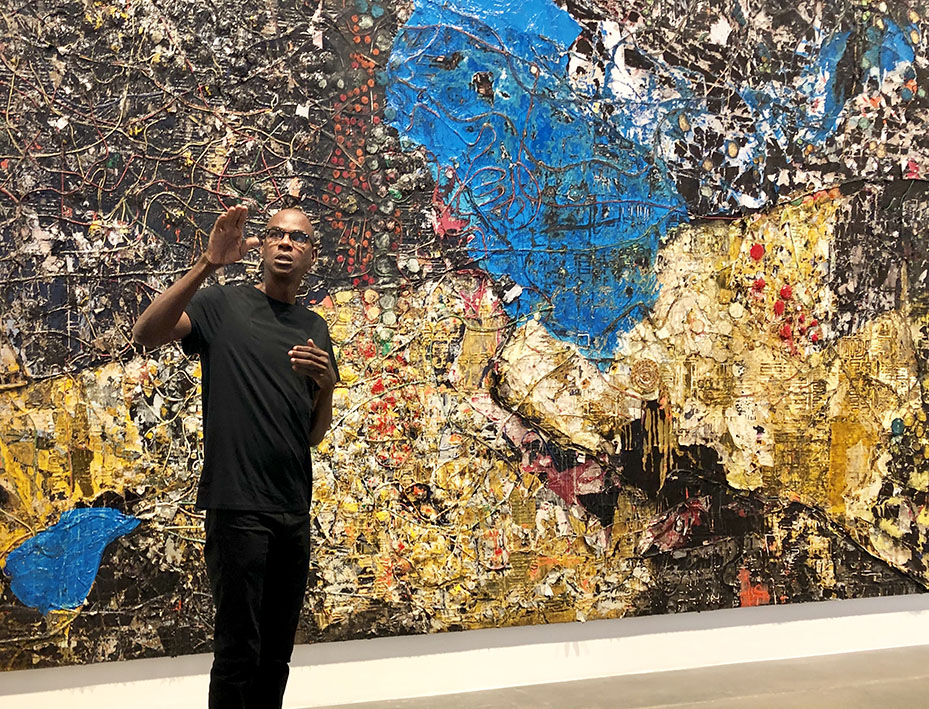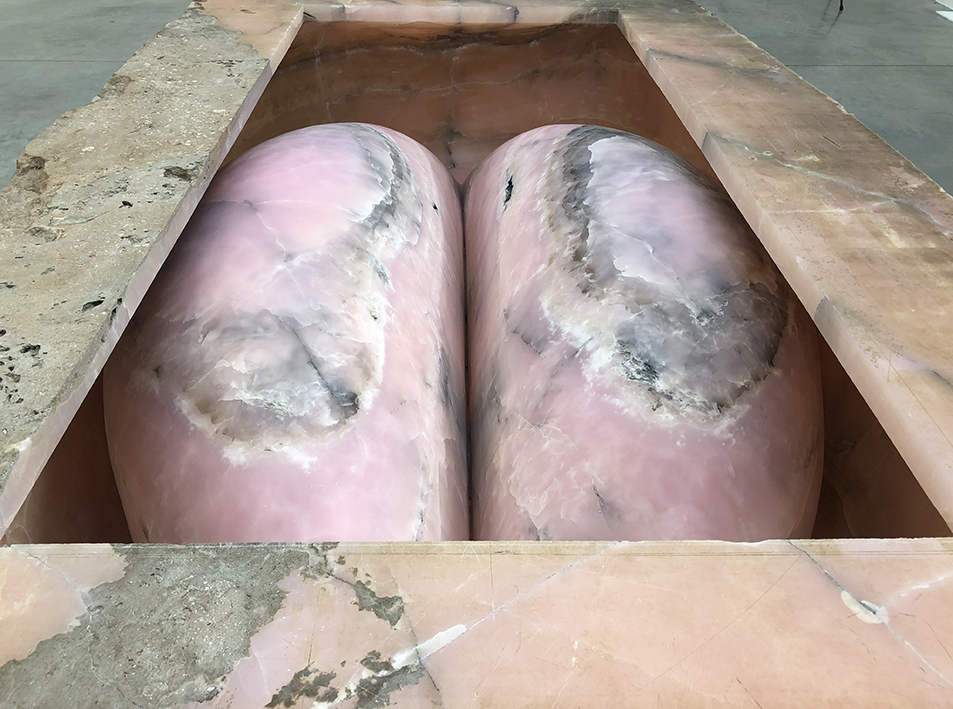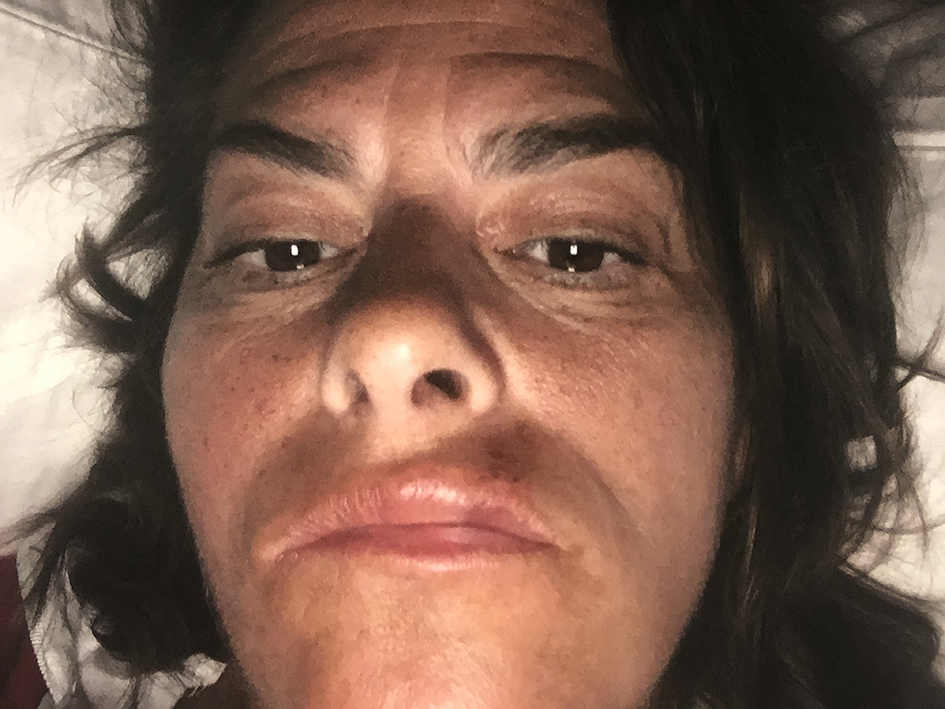 In the first issue of 200%, the French perfumer Francis Kurkdjian argued that compared with other art forms, scent, really touches the senses as it is both an intimate and physical experience. He explained: “If you listen to music – let’s say an Opera – and it’s something you don’t like, you can still decide to stay in the room because at some point you think: ‘Okay, I don’t like it, but I can stay in the room anyway’. If you smell, though, something in the room that you think smells awful and you have a choice of staying or leaving, you’ll most likely to leave because there’s something physical at work which can make you feel sick.” Kurkdjian’s observation makes sense and is part of the reason as to why ‘scent’ remains the most fascinating, elusive and mysterious of all the senses.
There is also an ‘air of mystery’ around the perfume industry, which is known as a very closed and secretive industry.
Tania Sanchez, who wrote together with Luca Turin, the book ‘The Little Book of Perfumes’ wherein they review ‘The 100 Classics’, believes there will be benefits for the perfume industry to be more open. “Everything secret degenerates”, she says. “By all means, it ought to be more open. I don’t know what’s wrong with these industry twits. Look at our poor readers, who write us complaining they are spending everything on perfume: understanding makes you more likely to buy!”
In their book, Sanchez and Turin avoid speaking in woolly, mysterious terms about perfumes as they understand that perfume is about sharing. In the reviews of the perfumes they managed to find a fine balance in describing what they smell and experience in everyday language, but still written imaginatively, engagingly, with an infectious enthusiasm for perfumes.
200% spoke with Sanchez and discussed with her how she started in the profession of reviewing perfumes, the huge amount of perfumes that are launched each year and the scents she recalls from her own childhood.
200%: Could you describe what attracts and fascinates you the most about perfumes?
Tania Sanchez: Invention, abstraction, the balance between structure and richness, in short beauty.
200%: How did you get started in the profession of reviewing perfumes?
TS: Reviewing as a hobby started when I was a member of MakeupAlley.com, where there are thousands of member-penned product reviews. I was one of a group almost exclusively interested in perfume. Reviewing as a profession started when Luca Turin asked me to write the book with him.
200%: What skill set is required to become a perfume reviewer?
TS: Having your own taste and confidence in that taste is necessary. You ought to know when you genuinely love something and you ought to know when you don’t: and then you ought to be prepared to explain yourself. Some background of the perfume culture is also useful. Just as I expect a film reviewer to have seen more than a few movies predating Star Wars, I would expect a perfume reviewer to have experience of a wide range of fragrances, spanning categories and decades.
200%: Do you and Luca Turin share the same views and opinion on perfumes? If you and Luca review a perfume independently from one another is the review likely to be more or less the same? Are there perfumes on which you have a totally different opinion from each other?
TS: It was surprising how often we agreed on what’s crap and what’s good; our disagreements were usually on the middle ground. If we were to review the same perfume independently, however, our reviews of course would be vastly different. For starters, I am not a European man in his fifties with a background in olfaction science, with an obsession for airplanes. I am, therefore, rummaging around in quite a different bag for my references.
200%: We have interviewed two perfumers in the past: both of these people find the categorization for ‘male’ and ‘female’ perfumes to be absurd as they believe a consumer should wear what he/she likes, which is not a determination of gender. They regard the categorization of ‘male’ and ‘female’ perfumes as a mechanism for the industry to make more money. Do you agree?
TS: Yes.
200%: Can a man wear a woman’s perfume or are women’s perfumes generally more sweet, extravert and, therefore, not suitable for men?
TS: I think I might like Britney Spears ‘Fantasy’ better on a guy, come to think of it.
200%: What is your view regarding the huge amount of perfumes that are launched/released each year? Is there an overkill?
TS: It’s pathetic. The perfumers are given no time. Gone are the days when Edmond Roudnitska could spend years composing ‘Diorissimo’. Now they just endlessly copy the same worthless thing for client after client. Cheap, thoughtless, perfumes all hawked in a bus-stop ad with some model, in makeup, with a bottle. Yet they wonder why people aren’t buying.
200%: Luca Turin writes on Chanel No. 5 “Whether as the legend goes, the slug of aldehydes was a serendipitous mistake on the part of a lab technician preparing a trial, or whether Chanel’s perfumer, the brilliant perfumer Ernst Beaux, came upon the trick himself, it is impossible to know, but they changed fragrance forever.” Chanel No. 5 was followed by many more fragrances based on aldehydic florals. What do you consider, besides Chanel No. 5, to be other pioneering perfumes that have broken the rules of perfume making and changed how people thought about perfumes?
TS: Fougère Royale (not the one sold now – an entirely different fragrance), Parfum Idéal, Chypre, L’Origan, Emeraude – there is a long list.
200%: Are the most memorable perfumes not about new molecules but about an old thing turned around, or an idea approached from a different angle?
TS: The most memorable perfumes are, to quote Luca, “a new shape in the air.” It can be a brilliant use of a novel material or a new proportion of known ones, but whatever it is, you know you haven’t smelled anything like it before.
200%: What perfume(s) do you wear yourself?
TS: Whatever I feel like. Half the time I don’t even wear perfume!
200%: Scents can invoke memories of childhood. Are there any particular scents that you recall from your childhood?
TS: Plenty. My mother’s Soft Musk deodorant from Avon. Dad’s Old Spice and his shaving cream and hair gel. An aunt who wore Calandre; an aunt who wore Aromatics Elixir. Coconut and browning sugar in bibingka [type of rice cake from the Philippines]. Dad’s roses. The herb garden next to my swing set. The lemon tree and the wild mint next to the swimming pool. The strawberry-scented eraser I stole when I was five, which I hid and never used. But strawberry doesn’t make me feel guilty, lemon trees don’t make me think of swimming, and I like Calandre and Aromatics Elixir despite not being particularly fond of those aunts, so I don’t know whether these memories have any bearing on the way I feel about perfume.
Interview conducted by Thierry Somers
Picture: Andy Warhol, Chanel No. 5
‘The Little Book of Perfumes’, Luca Turin & Tania Sanchez, www.profilebooks.com
In the first issue of 200%, the French perfumer Francis Kurkdjian argued that compared with other art forms, scent, really touches the senses as it is both an intimate and physical experience. He explained: “If you listen to music – let’s say an Opera – and it’s something you don’t like, you can still decide to stay in the room because at some point you think: ‘Okay, I don’t like it, but I can stay in the room anyway’. If you smell, though, something in the room that you think smells awful and you have a choice of staying or leaving, you’ll most likely to leave because there’s something physical at work which can make you feel sick.” Kurkdjian’s observation makes sense and is part of the reason as to why ‘scent’ remains the most fascinating, elusive and mysterious of all the senses.
There is also an ‘air of mystery’ around the perfume industry, which is known as a very closed and secretive industry.
Tania Sanchez, who wrote together with Luca Turin, the book ‘The Little Book of Perfumes’ wherein they review ‘The 100 Classics’, believes there will be benefits for the perfume industry to be more open. “Everything secret degenerates”, she says. “By all means, it ought to be more open. I don’t know what’s wrong with these industry twits. Look at our poor readers, who write us complaining they are spending everything on perfume: understanding makes you more likely to buy!”
In their book, Sanchez and Turin avoid speaking in woolly, mysterious terms about perfumes as they understand that perfume is about sharing. In the reviews of the perfumes they managed to find a fine balance in describing what they smell and experience in everyday language, but still written imaginatively, engagingly, with an infectious enthusiasm for perfumes.
200% spoke with Sanchez and discussed with her how she started in the profession of reviewing perfumes, the huge amount of perfumes that are launched each year and the scents she recalls from her own childhood.
200%: Could you describe what attracts and fascinates you the most about perfumes?
Tania Sanchez: Invention, abstraction, the balance between structure and richness, in short beauty.
200%: How did you get started in the profession of reviewing perfumes?
TS: Reviewing as a hobby started when I was a member of MakeupAlley.com, where there are thousands of member-penned product reviews. I was one of a group almost exclusively interested in perfume. Reviewing as a profession started when Luca Turin asked me to write the book with him.
200%: What skill set is required to become a perfume reviewer?
TS: Having your own taste and confidence in that taste is necessary. You ought to know when you genuinely love something and you ought to know when you don’t: and then you ought to be prepared to explain yourself. Some background of the perfume culture is also useful. Just as I expect a film reviewer to have seen more than a few movies predating Star Wars, I would expect a perfume reviewer to have experience of a wide range of fragrances, spanning categories and decades.
200%: Do you and Luca Turin share the same views and opinion on perfumes? If you and Luca review a perfume independently from one another is the review likely to be more or less the same? Are there perfumes on which you have a totally different opinion from each other?
TS: It was surprising how often we agreed on what’s crap and what’s good; our disagreements were usually on the middle ground. If we were to review the same perfume independently, however, our reviews of course would be vastly different. For starters, I am not a European man in his fifties with a background in olfaction science, with an obsession for airplanes. I am, therefore, rummaging around in quite a different bag for my references.
200%: We have interviewed two perfumers in the past: both of these people find the categorization for ‘male’ and ‘female’ perfumes to be absurd as they believe a consumer should wear what he/she likes, which is not a determination of gender. They regard the categorization of ‘male’ and ‘female’ perfumes as a mechanism for the industry to make more money. Do you agree?
TS: Yes.
200%: Can a man wear a woman’s perfume or are women’s perfumes generally more sweet, extravert and, therefore, not suitable for men?
TS: I think I might like Britney Spears ‘Fantasy’ better on a guy, come to think of it.
200%: What is your view regarding the huge amount of perfumes that are launched/released each year? Is there an overkill?
TS: It’s pathetic. The perfumers are given no time. Gone are the days when Edmond Roudnitska could spend years composing ‘Diorissimo’. Now they just endlessly copy the same worthless thing for client after client. Cheap, thoughtless, perfumes all hawked in a bus-stop ad with some model, in makeup, with a bottle. Yet they wonder why people aren’t buying.
200%: Luca Turin writes on Chanel No. 5 “Whether as the legend goes, the slug of aldehydes was a serendipitous mistake on the part of a lab technician preparing a trial, or whether Chanel’s perfumer, the brilliant perfumer Ernst Beaux, came upon the trick himself, it is impossible to know, but they changed fragrance forever.” Chanel No. 5 was followed by many more fragrances based on aldehydic florals. What do you consider, besides Chanel No. 5, to be other pioneering perfumes that have broken the rules of perfume making and changed how people thought about perfumes?
TS: Fougère Royale (not the one sold now – an entirely different fragrance), Parfum Idéal, Chypre, L’Origan, Emeraude – there is a long list.
200%: Are the most memorable perfumes not about new molecules but about an old thing turned around, or an idea approached from a different angle?
TS: The most memorable perfumes are, to quote Luca, “a new shape in the air.” It can be a brilliant use of a novel material or a new proportion of known ones, but whatever it is, you know you haven’t smelled anything like it before.
200%: What perfume(s) do you wear yourself?
TS: Whatever I feel like. Half the time I don’t even wear perfume!
200%: Scents can invoke memories of childhood. Are there any particular scents that you recall from your childhood?
TS: Plenty. My mother’s Soft Musk deodorant from Avon. Dad’s Old Spice and his shaving cream and hair gel. An aunt who wore Calandre; an aunt who wore Aromatics Elixir. Coconut and browning sugar in bibingka [type of rice cake from the Philippines]. Dad’s roses. The herb garden next to my swing set. The lemon tree and the wild mint next to the swimming pool. The strawberry-scented eraser I stole when I was five, which I hid and never used. But strawberry doesn’t make me feel guilty, lemon trees don’t make me think of swimming, and I like Calandre and Aromatics Elixir despite not being particularly fond of those aunts, so I don’t know whether these memories have any bearing on the way I feel about perfume.
Interview conducted by Thierry Somers
Picture: Andy Warhol, Chanel No. 5
‘The Little Book of Perfumes’, Luca Turin & Tania Sanchez, www.profilebooks.com
The Little Book of Perfumes
 In the first issue of 200%, the French perfumer Francis Kurkdjian argued that compared with other art forms, scent, really touches the senses as it is both an intimate and physical experience. He explained: “If you listen to music – let’s say an Opera – and it’s something you don’t like, you can still decide to stay in the room because at some point you think: ‘Okay, I don’t like it, but I can stay in the room anyway’. If you smell, though, something in the room that you think smells awful and you have a choice of staying or leaving, you’ll most likely to leave because there’s something physical at work which can make you feel sick.” Kurkdjian’s observation makes sense and is part of the reason as to why ‘scent’ remains the most fascinating, elusive and mysterious of all the senses.
There is also an ‘air of mystery’ around the perfume industry, which is known as a very closed and secretive industry.
Tania Sanchez, who wrote together with Luca Turin, the book ‘The Little Book of Perfumes’ wherein they review ‘The 100 Classics’, believes there will be benefits for the perfume industry to be more open. “Everything secret degenerates”, she says. “By all means, it ought to be more open. I don’t know what’s wrong with these industry twits. Look at our poor readers, who write us complaining they are spending everything on perfume: understanding makes you more likely to buy!”
In their book, Sanchez and Turin avoid speaking in woolly, mysterious terms about perfumes as they understand that perfume is about sharing. In the reviews of the perfumes they managed to find a fine balance in describing what they smell and experience in everyday language, but still written imaginatively, engagingly, with an infectious enthusiasm for perfumes.
200% spoke with Sanchez and discussed with her how she started in the profession of reviewing perfumes, the huge amount of perfumes that are launched each year and the scents she recalls from her own childhood.
200%: Could you describe what attracts and fascinates you the most about perfumes?
Tania Sanchez: Invention, abstraction, the balance between structure and richness, in short beauty.
200%: How did you get started in the profession of reviewing perfumes?
TS: Reviewing as a hobby started when I was a member of MakeupAlley.com, where there are thousands of member-penned product reviews. I was one of a group almost exclusively interested in perfume. Reviewing as a profession started when Luca Turin asked me to write the book with him.
200%: What skill set is required to become a perfume reviewer?
TS: Having your own taste and confidence in that taste is necessary. You ought to know when you genuinely love something and you ought to know when you don’t: and then you ought to be prepared to explain yourself. Some background of the perfume culture is also useful. Just as I expect a film reviewer to have seen more than a few movies predating Star Wars, I would expect a perfume reviewer to have experience of a wide range of fragrances, spanning categories and decades.
200%: Do you and Luca Turin share the same views and opinion on perfumes? If you and Luca review a perfume independently from one another is the review likely to be more or less the same? Are there perfumes on which you have a totally different opinion from each other?
TS: It was surprising how often we agreed on what’s crap and what’s good; our disagreements were usually on the middle ground. If we were to review the same perfume independently, however, our reviews of course would be vastly different. For starters, I am not a European man in his fifties with a background in olfaction science, with an obsession for airplanes. I am, therefore, rummaging around in quite a different bag for my references.
200%: We have interviewed two perfumers in the past: both of these people find the categorization for ‘male’ and ‘female’ perfumes to be absurd as they believe a consumer should wear what he/she likes, which is not a determination of gender. They regard the categorization of ‘male’ and ‘female’ perfumes as a mechanism for the industry to make more money. Do you agree?
TS: Yes.
200%: Can a man wear a woman’s perfume or are women’s perfumes generally more sweet, extravert and, therefore, not suitable for men?
TS: I think I might like Britney Spears ‘Fantasy’ better on a guy, come to think of it.
200%: What is your view regarding the huge amount of perfumes that are launched/released each year? Is there an overkill?
TS: It’s pathetic. The perfumers are given no time. Gone are the days when Edmond Roudnitska could spend years composing ‘Diorissimo’. Now they just endlessly copy the same worthless thing for client after client. Cheap, thoughtless, perfumes all hawked in a bus-stop ad with some model, in makeup, with a bottle. Yet they wonder why people aren’t buying.
200%: Luca Turin writes on Chanel No. 5 “Whether as the legend goes, the slug of aldehydes was a serendipitous mistake on the part of a lab technician preparing a trial, or whether Chanel’s perfumer, the brilliant perfumer Ernst Beaux, came upon the trick himself, it is impossible to know, but they changed fragrance forever.” Chanel No. 5 was followed by many more fragrances based on aldehydic florals. What do you consider, besides Chanel No. 5, to be other pioneering perfumes that have broken the rules of perfume making and changed how people thought about perfumes?
TS: Fougère Royale (not the one sold now – an entirely different fragrance), Parfum Idéal, Chypre, L’Origan, Emeraude – there is a long list.
200%: Are the most memorable perfumes not about new molecules but about an old thing turned around, or an idea approached from a different angle?
TS: The most memorable perfumes are, to quote Luca, “a new shape in the air.” It can be a brilliant use of a novel material or a new proportion of known ones, but whatever it is, you know you haven’t smelled anything like it before.
200%: What perfume(s) do you wear yourself?
TS: Whatever I feel like. Half the time I don’t even wear perfume!
200%: Scents can invoke memories of childhood. Are there any particular scents that you recall from your childhood?
TS: Plenty. My mother’s Soft Musk deodorant from Avon. Dad’s Old Spice and his shaving cream and hair gel. An aunt who wore Calandre; an aunt who wore Aromatics Elixir. Coconut and browning sugar in bibingka [type of rice cake from the Philippines]. Dad’s roses. The herb garden next to my swing set. The lemon tree and the wild mint next to the swimming pool. The strawberry-scented eraser I stole when I was five, which I hid and never used. But strawberry doesn’t make me feel guilty, lemon trees don’t make me think of swimming, and I like Calandre and Aromatics Elixir despite not being particularly fond of those aunts, so I don’t know whether these memories have any bearing on the way I feel about perfume.
Interview conducted by Thierry Somers
Picture: Andy Warhol, Chanel No. 5
‘The Little Book of Perfumes’, Luca Turin & Tania Sanchez, www.profilebooks.com
In the first issue of 200%, the French perfumer Francis Kurkdjian argued that compared with other art forms, scent, really touches the senses as it is both an intimate and physical experience. He explained: “If you listen to music – let’s say an Opera – and it’s something you don’t like, you can still decide to stay in the room because at some point you think: ‘Okay, I don’t like it, but I can stay in the room anyway’. If you smell, though, something in the room that you think smells awful and you have a choice of staying or leaving, you’ll most likely to leave because there’s something physical at work which can make you feel sick.” Kurkdjian’s observation makes sense and is part of the reason as to why ‘scent’ remains the most fascinating, elusive and mysterious of all the senses.
There is also an ‘air of mystery’ around the perfume industry, which is known as a very closed and secretive industry.
Tania Sanchez, who wrote together with Luca Turin, the book ‘The Little Book of Perfumes’ wherein they review ‘The 100 Classics’, believes there will be benefits for the perfume industry to be more open. “Everything secret degenerates”, she says. “By all means, it ought to be more open. I don’t know what’s wrong with these industry twits. Look at our poor readers, who write us complaining they are spending everything on perfume: understanding makes you more likely to buy!”
In their book, Sanchez and Turin avoid speaking in woolly, mysterious terms about perfumes as they understand that perfume is about sharing. In the reviews of the perfumes they managed to find a fine balance in describing what they smell and experience in everyday language, but still written imaginatively, engagingly, with an infectious enthusiasm for perfumes.
200% spoke with Sanchez and discussed with her how she started in the profession of reviewing perfumes, the huge amount of perfumes that are launched each year and the scents she recalls from her own childhood.
200%: Could you describe what attracts and fascinates you the most about perfumes?
Tania Sanchez: Invention, abstraction, the balance between structure and richness, in short beauty.
200%: How did you get started in the profession of reviewing perfumes?
TS: Reviewing as a hobby started when I was a member of MakeupAlley.com, where there are thousands of member-penned product reviews. I was one of a group almost exclusively interested in perfume. Reviewing as a profession started when Luca Turin asked me to write the book with him.
200%: What skill set is required to become a perfume reviewer?
TS: Having your own taste and confidence in that taste is necessary. You ought to know when you genuinely love something and you ought to know when you don’t: and then you ought to be prepared to explain yourself. Some background of the perfume culture is also useful. Just as I expect a film reviewer to have seen more than a few movies predating Star Wars, I would expect a perfume reviewer to have experience of a wide range of fragrances, spanning categories and decades.
200%: Do you and Luca Turin share the same views and opinion on perfumes? If you and Luca review a perfume independently from one another is the review likely to be more or less the same? Are there perfumes on which you have a totally different opinion from each other?
TS: It was surprising how often we agreed on what’s crap and what’s good; our disagreements were usually on the middle ground. If we were to review the same perfume independently, however, our reviews of course would be vastly different. For starters, I am not a European man in his fifties with a background in olfaction science, with an obsession for airplanes. I am, therefore, rummaging around in quite a different bag for my references.
200%: We have interviewed two perfumers in the past: both of these people find the categorization for ‘male’ and ‘female’ perfumes to be absurd as they believe a consumer should wear what he/she likes, which is not a determination of gender. They regard the categorization of ‘male’ and ‘female’ perfumes as a mechanism for the industry to make more money. Do you agree?
TS: Yes.
200%: Can a man wear a woman’s perfume or are women’s perfumes generally more sweet, extravert and, therefore, not suitable for men?
TS: I think I might like Britney Spears ‘Fantasy’ better on a guy, come to think of it.
200%: What is your view regarding the huge amount of perfumes that are launched/released each year? Is there an overkill?
TS: It’s pathetic. The perfumers are given no time. Gone are the days when Edmond Roudnitska could spend years composing ‘Diorissimo’. Now they just endlessly copy the same worthless thing for client after client. Cheap, thoughtless, perfumes all hawked in a bus-stop ad with some model, in makeup, with a bottle. Yet they wonder why people aren’t buying.
200%: Luca Turin writes on Chanel No. 5 “Whether as the legend goes, the slug of aldehydes was a serendipitous mistake on the part of a lab technician preparing a trial, or whether Chanel’s perfumer, the brilliant perfumer Ernst Beaux, came upon the trick himself, it is impossible to know, but they changed fragrance forever.” Chanel No. 5 was followed by many more fragrances based on aldehydic florals. What do you consider, besides Chanel No. 5, to be other pioneering perfumes that have broken the rules of perfume making and changed how people thought about perfumes?
TS: Fougère Royale (not the one sold now – an entirely different fragrance), Parfum Idéal, Chypre, L’Origan, Emeraude – there is a long list.
200%: Are the most memorable perfumes not about new molecules but about an old thing turned around, or an idea approached from a different angle?
TS: The most memorable perfumes are, to quote Luca, “a new shape in the air.” It can be a brilliant use of a novel material or a new proportion of known ones, but whatever it is, you know you haven’t smelled anything like it before.
200%: What perfume(s) do you wear yourself?
TS: Whatever I feel like. Half the time I don’t even wear perfume!
200%: Scents can invoke memories of childhood. Are there any particular scents that you recall from your childhood?
TS: Plenty. My mother’s Soft Musk deodorant from Avon. Dad’s Old Spice and his shaving cream and hair gel. An aunt who wore Calandre; an aunt who wore Aromatics Elixir. Coconut and browning sugar in bibingka [type of rice cake from the Philippines]. Dad’s roses. The herb garden next to my swing set. The lemon tree and the wild mint next to the swimming pool. The strawberry-scented eraser I stole when I was five, which I hid and never used. But strawberry doesn’t make me feel guilty, lemon trees don’t make me think of swimming, and I like Calandre and Aromatics Elixir despite not being particularly fond of those aunts, so I don’t know whether these memories have any bearing on the way I feel about perfume.
Interview conducted by Thierry Somers
Picture: Andy Warhol, Chanel No. 5
‘The Little Book of Perfumes’, Luca Turin & Tania Sanchez, www.profilebooks.com

